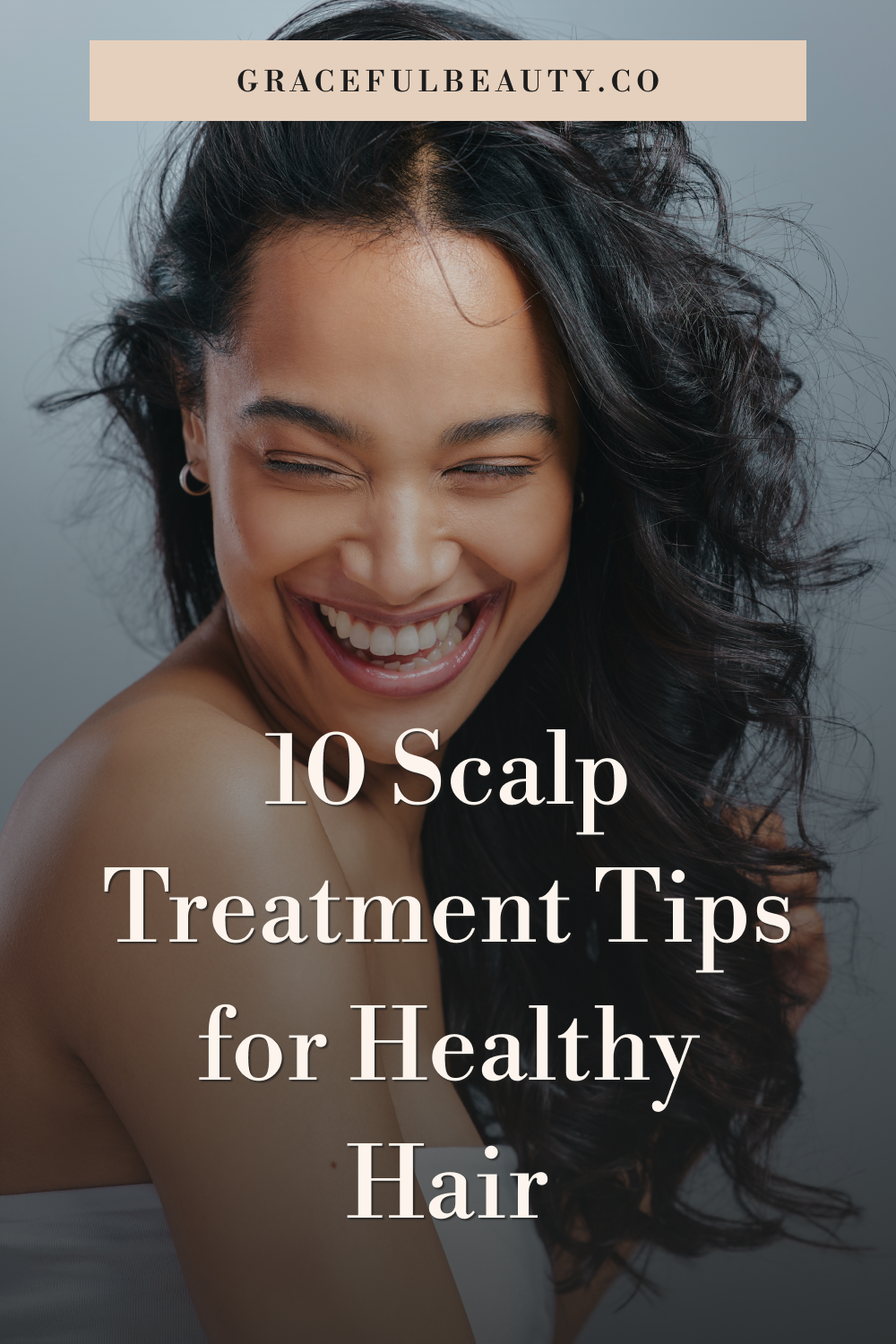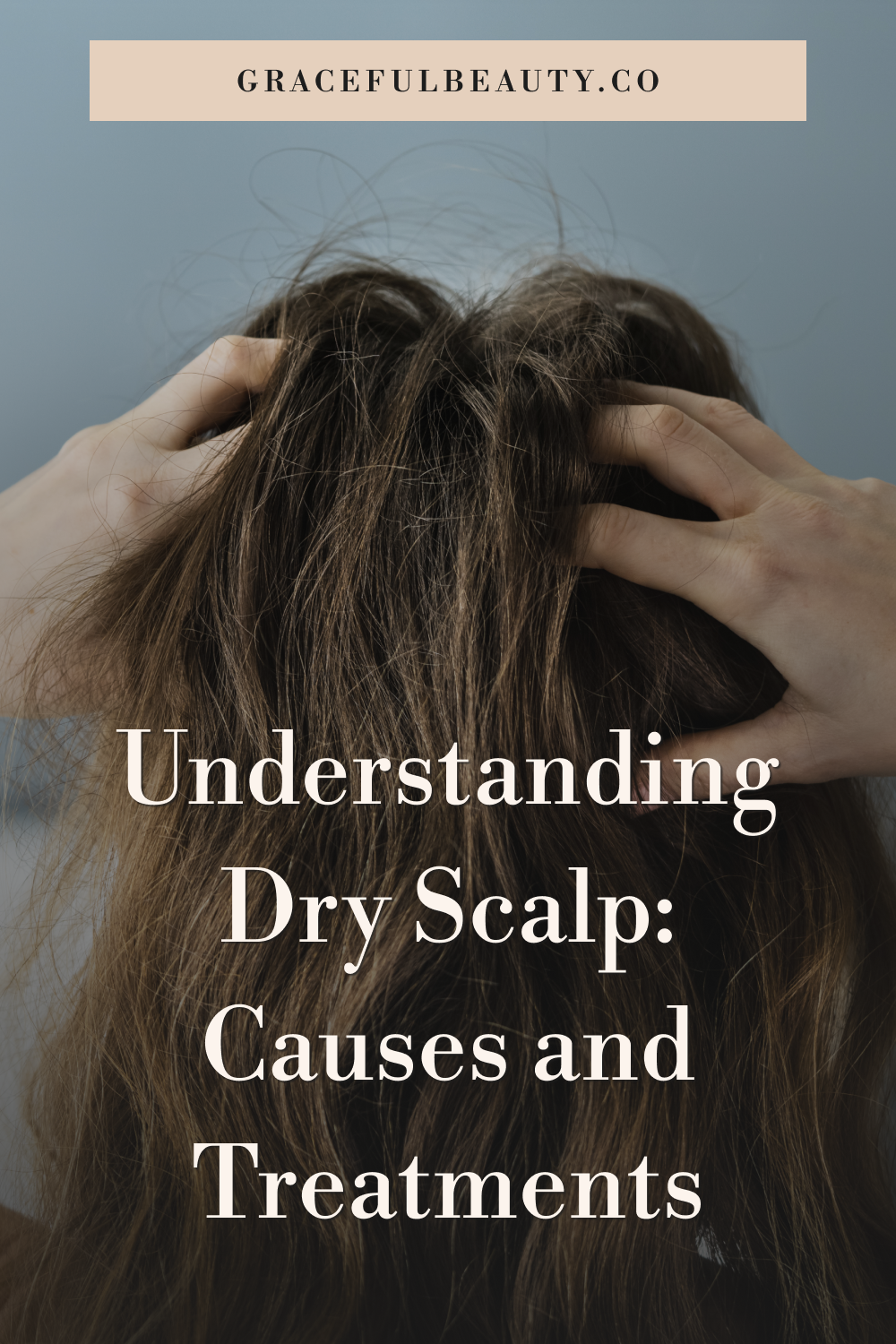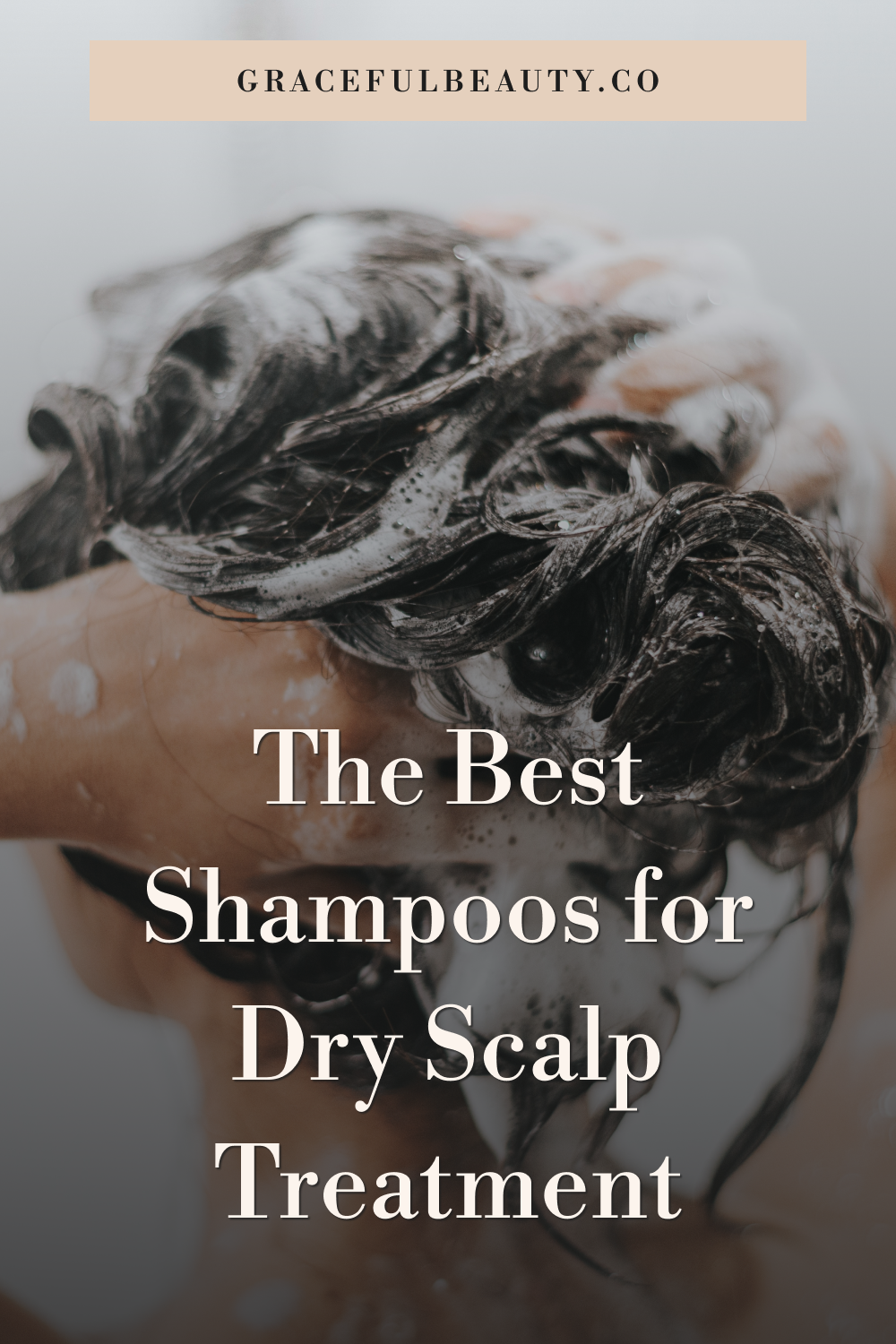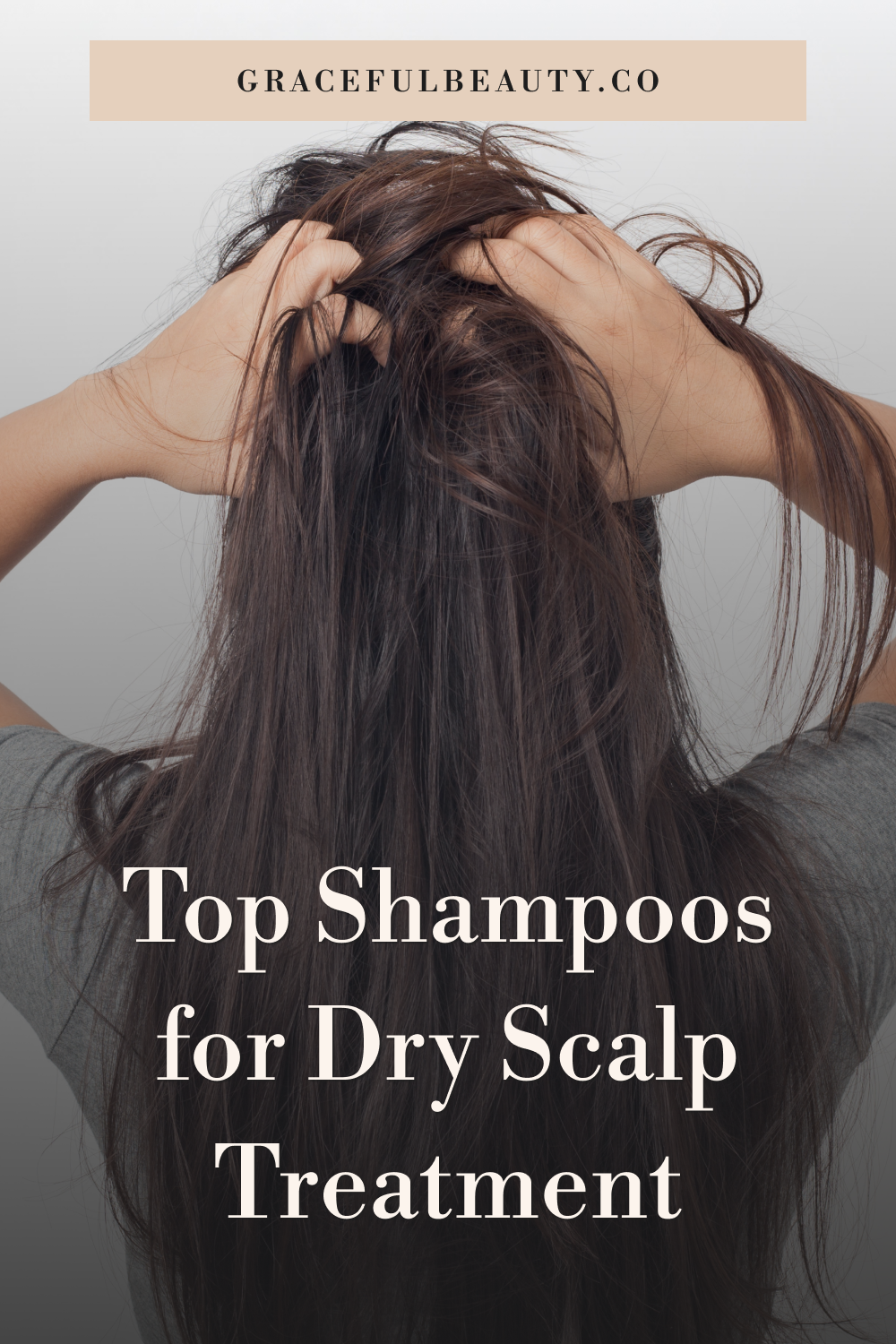
In this article, you will learn essential scalp treatment tips for healthy hair.
When it comes to scalp treatments, finding the right one can make all the difference. Whether you’re dealing with dryness, itchiness, or flakiness, there are effective solutions available to address these concerns. From moisturizing scalp serums infused with honey to affordable drugstore elixirs, we’ll explore a range of options to help you effectively treat your scalp and achieve healthier, more comfortable skin.
10 Essential Scalp Treatment Tips for Healthy Hair
Scalp health is crucial for maintaining healthy, beautiful hair. Neglecting your scalp can lead to various issues such as dandruff, dryness, and hair loss. Implementing a consistent scalp care routine can significantly improve the overall health and appearance of your hair. Here are 10 essential scalp treatment tips to help you achieve and maintain healthy hair.
1. Choose the Right Shampoo and Conditioner
Selecting the right shampoo and conditioner for your scalp type is fundamental. If you have a dry scalp, opt for moisturizing and sulfate-free products. For oily scalps, go for clarifying shampoos that can effectively remove excess oil and buildup.
2. Regular Scalp Massages
Massaging your scalp regularly can stimulate blood flow and promote hair growth. Use your fingertips to gently massage your scalp in circular motions for a few minutes each day to enhance circulation and encourage a healthy scalp environment.
3. Keep Your Scalp Clean
Maintaining a clean scalp is vital for healthy hair. Over time, product buildup, oil, and dead skin cells can accumulate, leading to scalp issues. Ensure regular cleansing to prevent blockages and promote a clean and healthy scalp.
4. Protect Your Scalp from the Sun
Just like your skin, your scalp needs protection from the sun. Prolonged sun exposure can damage the scalp and lead to issues such as sunburn and dryness. Consider wearing a hat or using hair products with SPF to shield your scalp from harmful UV rays.
5. Use Scalp-Specific Treatments
Incorporate scalp treatments such as masks, serums, or oils into your routine to address specific scalp concerns. Look for ingredients like tea tree oil for dandruff, peppermint oil for promoting circulation, or aloe vera for soothing irritation.
6. Avoid Overexposure to Heat Styling Tools
Excessive heat from styling tools can dehydrate the scalp and lead to damage. Limit the use of hot styling tools and always use a heat protectant spray to shield your scalp and hair from the damaging effects of heat.
7. Balanced Diet and Hydration
Consuming a balanced diet rich in vitamins, minerals, and proteins is essential for scalp and hair health. Additionally, staying hydrated supports overall scalp hydration, preventing dryness and flakiness.
8. Regular Scalp Exfoliation
Just like the skin on the rest of your body, your scalp can benefit from exfoliation. Using a scalp scrub or exfoliating brush can help remove dead skin cells and product buildup, promoting a healthy scalp environment.
9. Avoid Tight Hairstyles
Wearing tight hairstyles like ponytails or braids can put excessive tension on the scalp, leading to hair breakage and potential scalp damage. Opt for looser styles to minimize stress on the scalp.
10. Consult a Professional
If you experience persistent scalp issues or notice dramatic changes in your scalp or hair health, seek advice from a dermatologist or trichologist. Professional guidance can help identify underlying concerns and provide tailored solutions for your scalp health.
Incorporating these scalp treatment tips into your hair care routine can contribute to a healthy scalp environment, leading to lustrous, vibrant hair. Prioritizing scalp health is the foundation for achieving and maintaining beautiful, nourished hair.
Understanding Scalp Health and Dryness
Dryness of the scalp can be caused by various factors such as the use of harsh hair care products leading to contact dermatitis, dry weather conditions, and aging. Contact dermatitis, resulting from the use of irritating hair care products, can lead to itchiness and irritation, drying out the scalp by stripping it of natural oils. Additionally, low humidity and cold climates can also contribute to scalp dryness.
What Causes Scalp Dryness?
Scalp dryness can be attributed to factors such as contact dermatitis, weather conditions, aging, psoriasis, tinea capitis (scalp ringworm), and actinic keratosis (AK). Psoriasis is a chronic skin condition characterized by rapid skin cell growth, resulting in patches known as plaques. Tinea capitis, or scalp ringworm, is a fungal infection that spreads easily through direct contact with infected objects or surfaces. Actinic keratosis, caused by unprotected sun exposure, is common in individuals over the age of 50 who spend extended periods outdoors without sun protection.
Signs of an Unhealthy Scalp
Signs of an unhealthy scalp may include itchiness, irritation, redness, and flakiness. Additionally, individuals may experience discomfort and a feeling of tightness on the scalp. It is important to monitor these signs and seek appropriate scalp treatments to maintain optimal scalp health.
Natural Remedies for Scalp Treatment
The Benefits of Honey for Your Scalp
Honey is a natural humectant, meaning it attracts and retains moisture, making it an excellent ingredient for hydrating the scalp. Its antimicrobial properties also help in preventing scalp infections, while its soothing effects can alleviate itchiness and irritation. Applying a mixture of honey and warm water to the scalp and leaving it on for 20-30 minutes before rinsing can provide relief and nourishment.
Essential Oils for Scalp Hydration
Essential oils such as tea tree oil, peppermint oil, and lavender oil have been lauded for their scalp-hydrating properties. Tea tree oil possesses anti-inflammatory and antimicrobial properties, making it effective in soothing and cleansing the scalp. Peppermint oil is known for its cooling sensation and ability to enhance circulation, while lavender oil can help calm scalp inflammation. Diluting a few drops of these essential oils in a carrier oil and massaging the mixture into the scalp can promote hydration and overall scalp health.
DIY Scalp Masks with Kitchen Ingredients
Creating scalp masks with kitchen ingredients can be a cost-effective and natural approach to scalp treatment. Ingredients like yogurt, aloe vera, and coconut milk can be combined to form nourishing scalp masks. Yogurt contains probiotics that can promote a healthy scalp, aloe vera possesses anti-inflammatory and moisturizing properties, and coconut milk is rich in fatty acids that can condition the scalp. Applying these masks to the scalp for 20-30 minutes before rinsing can provide a rejuvenating and hydrating treatment.
For further information on the benefits of honey and essential oils for scalp treatment, readers can refer to Healthline’s Benefits of a Honey Hair Mask.
Over-the-Counter Solutions for Scalp Care
Choosing the Right Shampoo for Scalp Health
When it comes to maintaining a healthy scalp, selecting the right shampoo is crucial. Look for shampoos that are specifically formulated to target scalp issues such as dandruff, dryness, or excess oil. Ingredients like tea tree oil, salicylic acid, or ketoconazole can be beneficial for addressing these concerns. Additionally, opt for sulfate-free shampoos to avoid stripping the scalp of its natural oils. Consider exploring more about scalp health and various shampoos to use, check out The Best Dry Scalp Shampoo for Your Hair Type.
Scalp Serums and Their Ingredients
Scalp serums are increasingly popular for promoting scalp health and addressing specific concerns such as itchiness or flakiness. Look for serums containing ingredients like peppermint oil, vitamin E, or hyaluronic acid, which are known for their soothing and moisturizing properties. Understanding the benefits of these ingredients can help in selecting the most suitable scalp serum.
For comprehensive information about scalp serums and their effectiveness, refer to Love Beauty and Planet.
Sprays and Elixirs for Instant Relief
For immediate relief from scalp discomfort, sprays and elixirs can be an effective solution. Products containing ingredients like aloe vera, lavender oil, or witch hazel are known for their calming and anti-inflammatory properties. These can provide quick relief from itching and irritation.
By understanding the role of these over-the-counter solutions and their specific benefits, individuals can make informed choices to maintain optimal scalp health.
Scalp Treatment Techniques
The proper application of scalp treatments is crucial for achieving optimal results. When applying scalp treatments, it is important to section the hair to ensure even distribution and coverage of the product. Whether using a scalp serum, mask, or tonic, follow the product instructions for the correct application method. Massaging the treatment into the scalp using gentle, circular motions can further enhance absorption and promote circulation, aiding in the delivery of essential nutrients to the hair follicles.
Proper Application of Scalp Treatments
Proper application of scalp treatments is crucial for efficacy. Section the hair and follow product instructions for even application. Massaging the treatment in circular motions can aid absorption and circulation.
Scalp Massage for Better Absorption
Scalp massage plays a vital role in enhancing the absorption of treatments. Through gentle, circular motions, massage promotes blood flow to the scalp, aiding in the delivery of nutrients and stimulating hair follicles for better absorption.
Tips for Preventing Scalp Irritation
To prevent scalp irritation, it’s important to choose products suitable for your scalp type. Look for gentle formulations and natural ingredients, and perform a patch test before full application. Additionally, ensure thorough cleansing to avoid product buildup, and avoid excessive tension when massaging the scalp to prevent irritation.
For additional information about scalp health and care, visit Clinikally’s How Stress Affects Your Hair: 5 Ways and What to Do About It.
Professional Scalp Treatments
When to See a Specialist for Scalp Issues
If you are experiencing persistent scalp issues such as dandruff, itching, or inflammation that do not improve with over-the-counter treatments, it may be time to seek help from a dermatologist or trichologist. These specialists can assess your scalp condition and recommend personalized treatment options to address underlying issues.
Salon Treatments for Scalp Health
Many salons offer professional scalp treatments aimed at promoting scalp health and addressing specific concerns. Scalp massages, exfoliating treatments, and deep conditioning therapies can help improve circulation, remove product buildup, and nourish the scalp. Additionally, some salons provide specialized treatments with ingredients like tea tree oil or aloe vera, which can have soothing and rejuvenating effects on the scalp.
Consider integrating these professional treatments into your scalp care routine to complement your at-home regimen for optimal scalp health. Learn more about the benefits of scalp massages and understand how they can contribute to overall scalp wellness.
Maintaining a Healthy Scalp
Our daily habits and lifestyle choices profoundly impact the health of our scalp. By incorporating effective scalp care practices into our routine, we can nurture a balanced and nourished scalp, promoting overall hair health.
Daily Habits for Scalp Care
- Gentle Cleansing: Regularly cleanse your scalp with a mild, sulfate-free shampoo to remove excess oil, product buildup, and impurities. Gently massage the shampoo into your scalp to stimulate blood flow and promote a healthy environment for hair growth.
- Balanced Moisturizing: After cleansing, use a conditioner specifically designed for scalp health to maintain hydration without weighing down your hair. This helps prevent dryness and flakiness, fostering a healthy scalp environment.
- Scalp Massage: Consider incorporating scalp massages into your routine to boost circulation and promote relaxation. This simple practice can help alleviate tension and stress, contributing to a healthier scalp.
The Role of Diet in Scalp Health
A well-rounded diet rich in essential nutrients plays a crucial role in supporting scalp health. Incorporating foods high in omega-3 fatty acids, vitamins A and C, and biotin can contribute to a nourished scalp and vibrant hair. Foods such as salmon, leafy greens, nuts, and seeds can help fortify the scalp from within, enhancing its overall condition.
Avoiding Common Scalp Care Mistakes
- Overwashing or Underwashing: Finding the right balance in washing frequency is key. Overwashing can strip the scalp of its natural oils, leading to dryness, while underwashing can result in product buildup and potential scalp issues. Tailor your washing frequency to suit your scalp’s needs.
- Ignoring Scalp Health in Styling: Certain styling practices, such as tight hairstyles and excessive heat styling, can strain the scalp and lead to damage. Be mindful of how your styling choices may impact your scalp’s well-being and opt for scalp-friendly alternatives.
- Product Ingredient Awareness: Read product labels to identify and avoid harsh irritants such as sulfates and parabens, which can compromise scalp health. Opt for silicone-free hair products to prevent buildup and maintain a healthy scalp environment.
By implementing these daily habits, dietary considerations, and avoiding common scalp care mistakes, individuals can contribute to the overall health and well-being of their scalp, laying a strong foundation for lustrous, vibrant hair.
Final Thoughts
When it comes to effective scalp treatments, finding the right product can make a significant difference in addressing dryness, itchiness, and flakiness. Whether opting for the luxurious moisture of the Sachajuan Scalp Shampoo or the affordability and convenience of the Head & Shoulders Dry Scalp Care Anti-Dandruff Shampoo, there are solutions for various needs and preferences. By considering the pros and cons of each product, individuals can make an informed decision to promote scalp health and comfort.


